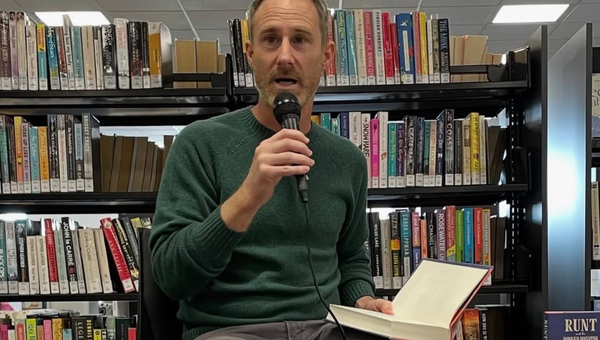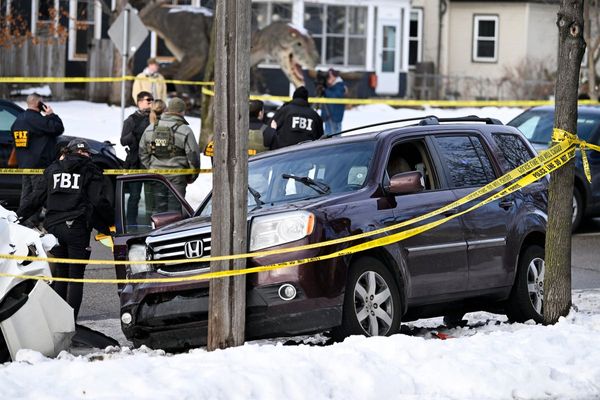
A mother whose 20-year-old daughter was kicked to death because she was dressed as a goth has said she feels “ignored” and “silenced” by the justice system as her killer is set to be freed from prison.
Sophie Lancaster was murdered and her boyfriend badly beaten in what a judge described as a “feral” and “savage” attack by teenagers in Lancashire in August 2007.
Her killer, Ryan Herbert, was 16 when he was jailed for life in 2008 and ordered to serve a minimum of 16 years in prison. His sentence was later reduced to 14 and a half years on appeal.
The Parole Board last week said Herbert, 30, can be released from prison after making “significant changes to his life”.
Sophie’s mother, Sylvia Lancaster, said she had not been given an explanation for the decision and she felt that the views of bereaved families were often ignored.
She said: “Fourteen years ago he was given a 16-year sentence. What are they saying? Are they saying that the crime is not as important as it was then? I find that quite a difficult concept to deal with.”

Lancaster, who was awarded an OBE in 2014 for her campaigning on hate crime, worked with young offenders before her daughter’s murder and believes strongly in the ability of people to change for the better.
She is also an advocate for the rehabilitation of prisoners. However, she said cannot square this belief with the level of violence suffered by her daughter in 2007.
Sophie’s injuries were so severe that paramedics could not facially distinguish if she was male or female. Trainer marks were visible on her face from where Herbert and others had stamped on her head until she fell into a coma. She died 13 days after the attack.
Speaking from her home in Lancashire, where framed pictures of Sophie decorate the living room and hallway, Lancaster said she did not believe Herbert’s rehabilitation “alters the facts” of her daughter’s murder.
She said: “People will say he’s done his time. That’s all right for him and his family. What about me and mine? When do we finish doing our time? Not only does it take your daughter’s life and her future, in reality they take your future as well.
“It doesn’t matter how liberal and left[wing] you are. At the end of the day, they’ve taken a life. That’s just as important 16 years ago as it is now. It doesn’t alter the facts.”
A Parole Board hearing was told that Herbert had made “exceptional progress in his rehabilitation” and ruled that he had made “significant changes to his life which reflected his remorse, his insight and increased maturity”.
He was moved to an open prison in November 2020 where he “improved his education with studies to degree level”, according to a summary of the panel’s decision.

Lancaster said she was given the opportunity to submit a victim impact statement to the Parole Board hearing but chose not to as she felt it would be dismissed.
Parole Board decisions are based solely on whether a prisoner would represent a significant risk to the public after release. Victims and their families are invited to explain the impact of the offence. However, it has no bearing on the board’s decision about whether a prisoner should be freed.
Lancaster said she felt “fed up” after evidence to previous parole hearings was “ignored”. “They just ignored what we said. You get to the stage where you just think, well, there’s no point really. They’re not going to take any notice.”
The Parole Board said it “very carefully” considered the views of victims and that it was “mindful of the life-changing impact of Mr Herbert’s offending on the victims and their families”.
Lancaster said she felt let down by the justice system. “It’s as though your voice doesn’t matter. You’re silenced,” she said.
“As a family, you’ve got justice – or as much justice as you’re ever going to get, and you know that. And then to start chipping away at it is really quite insulting. Once again, it seems that everything is focused on the perpetrator. Where is the victim’s voice in all of this?”
Lancaster, a member of the government’s hate crime advisory group, campaigned successfully for police to record and monitor hate crimes against people from alternative subcultures.
She is often asked whether she forgives her daughter’s killer. It is a question she has weighed for 15 years, and the answer is no. “I wonder sometimes if I did forgive him would that make it easier? Well, no I don’t really,” she said. “You’ve to be down and dirty to do what they did. I can’t forgive.”







